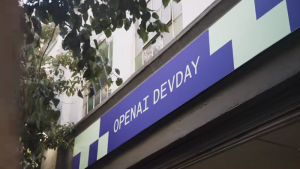Why personalized news apps will never take off
![]() Last week’s big acquisition saw CNN sell off its Zite newsreader app to Flipboard in a deal reportedly worth some $60 million, as the latter bids to become the world’s number one news personalization app. Flipboard says that it bought the app to provide “easier and better ways to discover content about the things that matter to you”, with CEO McCue claiming that Zite’s expertise in personalization and recommendations would “create an unparalleled personal magazine for our millions of readers.”
Last week’s big acquisition saw CNN sell off its Zite newsreader app to Flipboard in a deal reportedly worth some $60 million, as the latter bids to become the world’s number one news personalization app. Flipboard says that it bought the app to provide “easier and better ways to discover content about the things that matter to you”, with CEO McCue claiming that Zite’s expertise in personalization and recommendations would “create an unparalleled personal magazine for our millions of readers.”
McCue’s bold words sound eerily similar to those of former CNN General Manager KC Estenson, when the news agency first acquired Zite in 2011.
“The Zite technology can also help CNN’s websites and apps serve more personalized content, making our current digital services even better,” enthused Estenson at the time.
Of course, none of that happened. For whatever reason, Zite’s much-vaunted content discovery and news personalization technology was never integrated into CNN’s own products, and while the app continued as a standalone service, it’s growth slowed significantly over the last two and a half years. In other words, the deal never really lived up to its early promise.
‘Smart news’ is stupid
News reading apps have attracted a lot of buzz ever since Google announced its decision to shut down Reader, particularly from investors who believe they have the potential to become enormous cash cows.
But is that really how it’s going to play out? Is personalized news destined to transform forever the way we consume content?
From what we’ve seen so far, this isn’t likely. Quite a few of Flipboard’s biggest competitors have been born and died a quiet, lingering death in recent years, including Yahoo’s Livestand, AOL’s Editions and Google’s Currents, which was morphed into its equally unpopular Newsstand app. Even Pulse, probably the most well known news reader app because it came pre-installed on dozens of smartphones, failed to make much of an impact before selling itself to LinkedIn. Most recently we’ve seen Facebook make its own grab for the news reading world with the launch of Paper, which has so far barely registered with most iPhone users.
All of these apps have one thing in common – they try to ‘personalize’ your news for you, learning about your interests so they can deliver interesting articles that you wouldn’t have found by yourself. It’s a nice idea, but for all the millions man hours and dollars spent on devising and building algorithms that try to understand you, the reader, few people have actually dumped the major news portals for these apps. Sites like the BBC, CNN and the Washington Post are still far more popular, delivering most of the news and analysis that interests you, with conversation coming from the likes of Facebook and Twitter.
The problem that news personalization apps face is that news has never been a personal thing – it’s exactly the opposite, but while today’s big stories about the Malaysian airplane crash or the Ukraine crisis probably don’t have a direct impact on your life, you’re still interested in them. News sites are designed to appeal to broad audiences, that’s why they’re so successful. Meanwhile, those who have niche interests in subjects rarely covered by the news usually know where to look for this kind of content anyway.
So does that mean Flipboard’s Zite acquisition is going to be a flop? Perhaps not, for Flipboard’s success (100 million-odd users) came about without offering content discovery. Instead, it’s won over its user-base thanks to its sleek and beautiful interface that allows people to explore social media and news simultaneously – it’s magazine-like reading experience is a relaxing way to consume content, and it appeals to (some) people.
As Tony Tam, CEO of Reverb (another news app) explains, Flipboard doesn’t have content discovery, and it’s just the latest player to gamble on the technology one day taking off:
“Flipboard’s acquisition of Zite is revealing – it shows that Flipboard is aware that its current product lacks effective personalization, one of the most prized features in consumer technology,” said Tam.
The addition of Zite’s content-discovery technology is unlikely to harm Flipboard, but chances are it won’t help all that much either.
“It’s impossible to predict exactly how well two companies and technologies will come together. However, personalization has long been a valued concept, but it’s proven to be a hard nut to crack,” added Tam. “Understanding users well enough to effectively personalize a product takes a tremendous amount of effort – it’s not just a matter of scale, distribution, or beauty.”
But do people really value personalization when it comes to reading news? Zite may well be the best content discovery app around, but unless a significant number of people actually start using it instead of traditional news sources, it’s hard to believe that anyone really cares.
photo credit: loop_oh via photopin cc
A message from John Furrier, co-founder of SiliconANGLE:
Your vote of support is important to us and it helps us keep the content FREE.
One click below supports our mission to provide free, deep, and relevant content.
Join our community on YouTube
Join the community that includes more than 15,000 #CubeAlumni experts, including Amazon.com CEO Andy Jassy, Dell Technologies founder and CEO Michael Dell, Intel CEO Pat Gelsinger, and many more luminaries and experts.
THANK YOU













